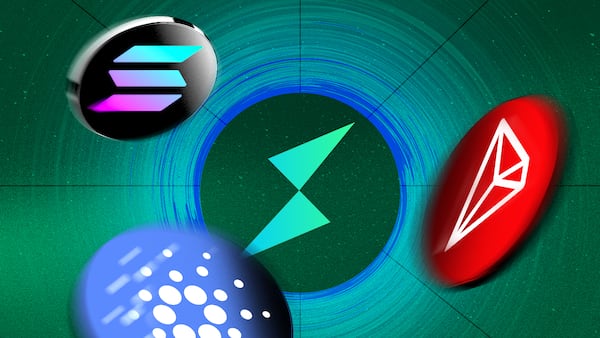- Luck.io is the newest onchain casino on Solana.
- It is paying influencers up to $500,000 per month.
- Some have questioned its claim to be "provably fair."
A new crypto casino on Solana has pulled in more than $65 million in bets just a month after launch — and it may have influencer payouts to thank.
Luck.io has been paying up to $500,000 per month to crypto influencers to promote its onchain gambling platform, according to Jordan Fish, better known as Cobie, the founder of angel investing platform Echo.xyz.
The rapid growth of Luck.io contrasts sharply with the fortunes of Rollbit, another crypto casino that once dominated the space. Rollbit generated more than $3 million in daily revenue at its peak in mid-February.
Since then, however, Rollbit has faced sustained criticism over its business practices, including questions around fairness and the treatment of winning users.
Its daily revenue has dropped to under $400,000 — a decline of nearly 90% from February levels, according to data from Rollbit.
Rollbit’s token, RLB, has plunged more than 85% from its all-time high.
Fish claimed the team behind Luck.io is the same as Rollbit “as far as he knows.” Luck confirmed the allegation days later, stating the platform “was created in collaboration by several investors with years of combined experience within the gambling industry, including Rollbit.”
Luck.io has been on the defensive in recent days following criticism of its mechanics and scepticism that its games are, as it claims, “provably fair.”
Provably fair?
Luck.io describes itself as a “trustless” and “non-custodial” casino, offering slot games it says are “provably fair” — a term of art in crypto gambling that refers to outcomes generated by cryptographic random number functions verifiable onchain.
But critics have challenged the platform’s fairness guarantees. Among them is Foobar, a pseudonymous crypto developer and former machine learning scientist at Google, who has questioned the validity of Luck.io’s random number generation.
The company claims to use a Verified Random Function, a cryptographic method designed to generate unpredictable numbers in a way that can be independently verified.
Luck.io’s documentation indicates that it relies on the Proov Protocol — a blockchain infrastructure layer that purportedly handles bets, settlements, and randomness verification, all recorded on the Solana blockchain. The Proov website links to a technical audit conducted by blockchain security firm Halborn.
Rather than a public GitHub repository, however, the codebase Luck.io provided auditors was reportedly shared via email — a departure from industry norms.
“Code audits are done through GitHub repositories 99% of the time,” Foobar said.
“That way, the public can verify that a specific commit hash matches the deployed code. This invalidates the entire audit, since nobody has any clue what was audited.”
Foobar also alleged that the random number function itself is controlled by a multisignature wallet operated by unidentified parties.
“It pushes signatures onchain saying ‘look at my VRF I generated by myself offchain.’ This is not a VRF,” he said.
“You can simply keep regenerating ‘VRFs’ until you get a result you like, then publish it.”
Luck.io has rejected the criticism, saying it is the result of a coordinated effort by affiliates of a competing crypto casino known as YEET.
In an attempt to rebut its critics, Luck.io has published a technical explanation of its randomness model and announced a multi-million dollar bug bounty to incentivise independent audits.
“Luckio is 1 month old and already disrupting the status quo of centralized casinos. We welcome that scrutiny,” the team stated on X.
“Transparency is the reason we built a casino where every bet, random seed, and payout can be verified on-chain.”
Zachary Rampone is a DeFi correspondent at DL News. Have a tip? Contact him at zrampone@dlnews.com









